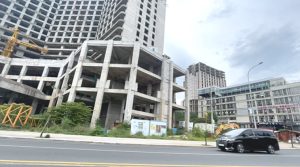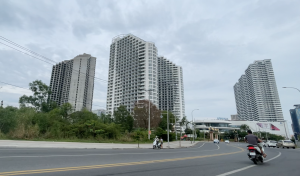


Sanjib Kumar Roy
Sihanoukville, a once-quaint seaside town in Cambodia, was transformed into a bustling casino town in just a few years, with dozens of hotels, casinos, and other attractions springing up throughout the city. The rapid development was driven primarily by Chinese investment, with tens of thousands of Chinese citizens moving to Cambodia to work in the gambling and hospitality industry.
However, this growth cycle came to an abrupt halt in late 2019 when the Cambodian government banned online gambling, which had been a wildly successful industry driving the city’s growth. Then, the COVID-19 pandemic struck, leading many Chinese developers to cut and run. The result has been a significant economic and social downturn in Sihanoukville, with more than 1,000 buildings abandoned for over two years.
Reasons Behind the Economic Downturn in Sihanoukville:
One of the primary reasons behind the economic downturn in Sihanoukville is overreliance on Chinese investment. Chinese investors saw an opportunity to make a quick profit in the small seaside town, and they financed the incredibly rapid construction of dozens of hotels, casinos, and other attractions. This growth cycle was fueled by online gambling, which had been booming in China until the government banned “proxy betting” in 2016. This led to a surge of Chinese investment in Sihanoukville, which became a hub for online gambling.
However, the online gambling industry in Sihanoukville was short-lived, as the Cambodian government responded to pressure from Beijing and banned online gambling in late 2019. This ban dealt a severe blow to the local economy, as many Chinese investors who had been financing casino-building projects dropped their projects due to fears of crackdowns by the authorities.
The COVID-19 pandemic only worsened the situation, with construction projects being suspended or abandoned due to lockdowns and investors pulling out due to the uncertainty caused by the pandemic. The combination of these factors has left Sihanoukville’s economy in limbo, with the town transformed into a ghost town.
Impact of Abandoned Building Projects on Developers, Contractors, and Clients:
The abandoned building projects in Sihanoukville are of concern not just to the local economy but also to parties like developers, contractors, and clients. Abandoned building projects can have adverse effects on these stakeholders, as they may not receive the compensation they are entitled to. Moreover, such projects can be an eyesore and have a negative impact on the surrounding environment.
The rise and fall of the casino town have had far-reaching social impacts as well. The influx of Chinese workers and businesses into Sihanoukville from 2016 through 2019 led to a boom in local rental and real estate prices, making local property owners rich overnight. However, this prosperity was short-lived, and the economic downturn that followed has led to social issues such as rising crime, gang conflicts, kidnappings, and drug networks.
Attempts to Revive the Local Economy:
The local authorities in Sihanoukville are making efforts to revive the local economy, but it is proving to be an uphill battle. One of the key challenges is the absence of legitimate investors who are willing to finance construction projects. Many investors pulled out after the online gambling ban and the outbreak of COVID-19, and there is no clear indication that they will return anytime soon.
Some local investors have expressed interest in buying abandoned building projects at a lower price, but there are concerns that this may not be enough to revive the local economy. Moreover, there is a lack of consensus on whether Chinese investment should be encouraged to return to Sihanoukville. Some argue that Chinese investment is the only way to revive complete the above article from the last line
Furthermore, it is crucial for governments to prioritize local communities and ensure that the benefits of foreign investment are shared equitably. In the case of Sihanoukville, the boom and subsequent bust left many locals behind, with rising crime and social issues. Moving forward, it is essential to ensure that the local population benefits from any new economic initiatives, rather than being left behind once again.
The story of Sihanoukville’s ghost town serves as a stark reminder of the dangers of overreliance on a single industry or country for economic development. While foreign investment can be a significant driver of growth, it is crucial to prioritize sustainable development and ensure that local communities benefit from any economic initiatives. Governments must take steps to diversify their economies and create job opportunities for their citizens, rather than relying on short-term gains that can quickly disappear. By doing so, they can avoid the fate of Sihanoukville’s ghost town and build a brighter future for their people.
(The writer has recently visited Sihanoukville, Cambodia as a participant of Lower Mekong Study Tour Program organised by East-West Center, Honolulu, United States.)


